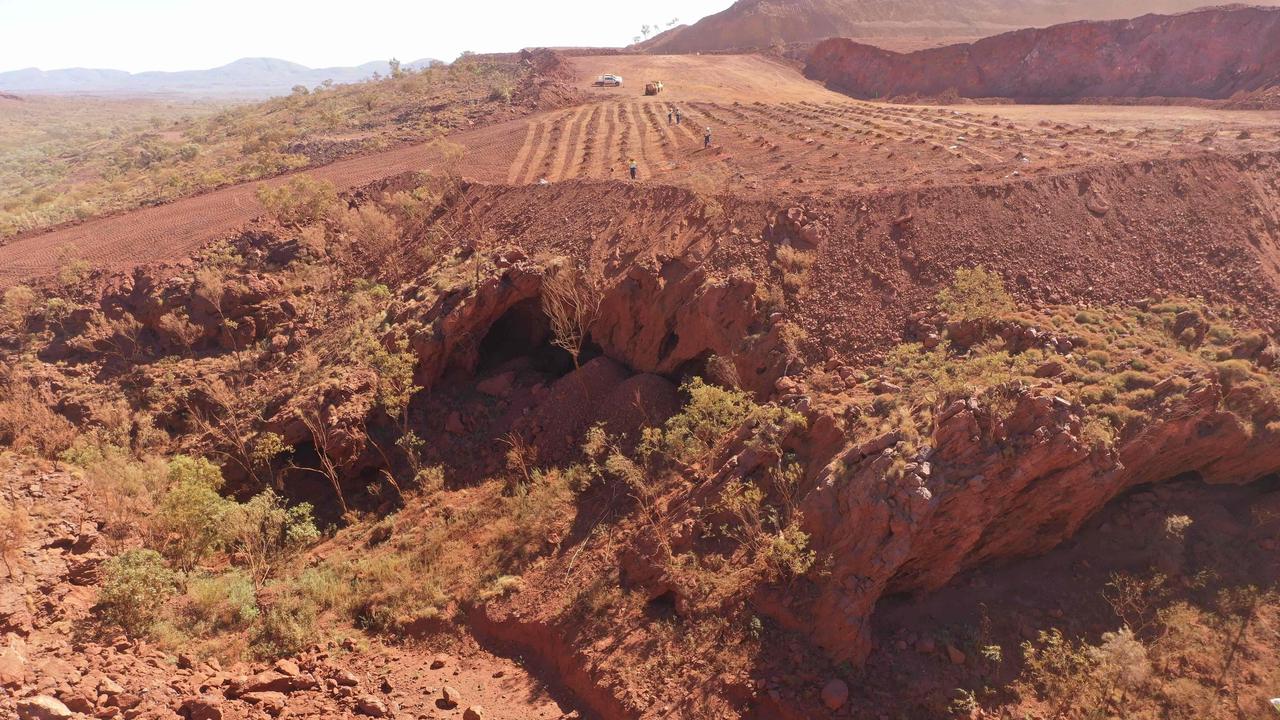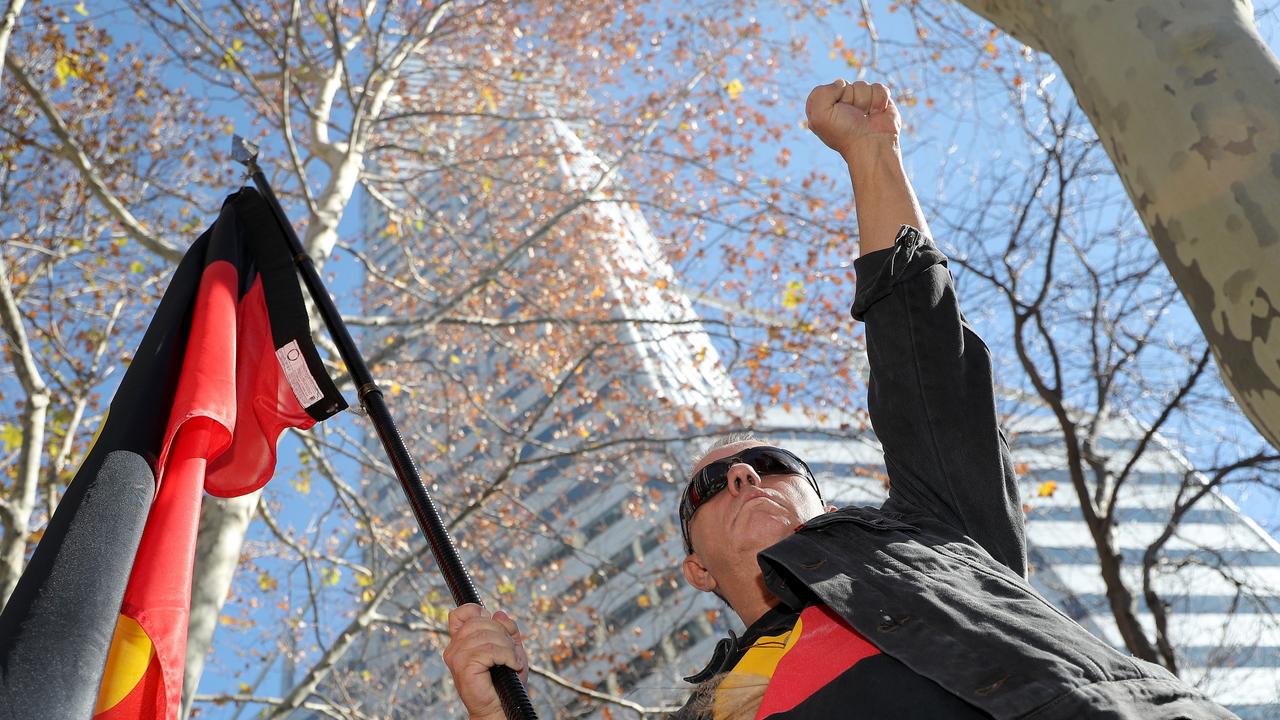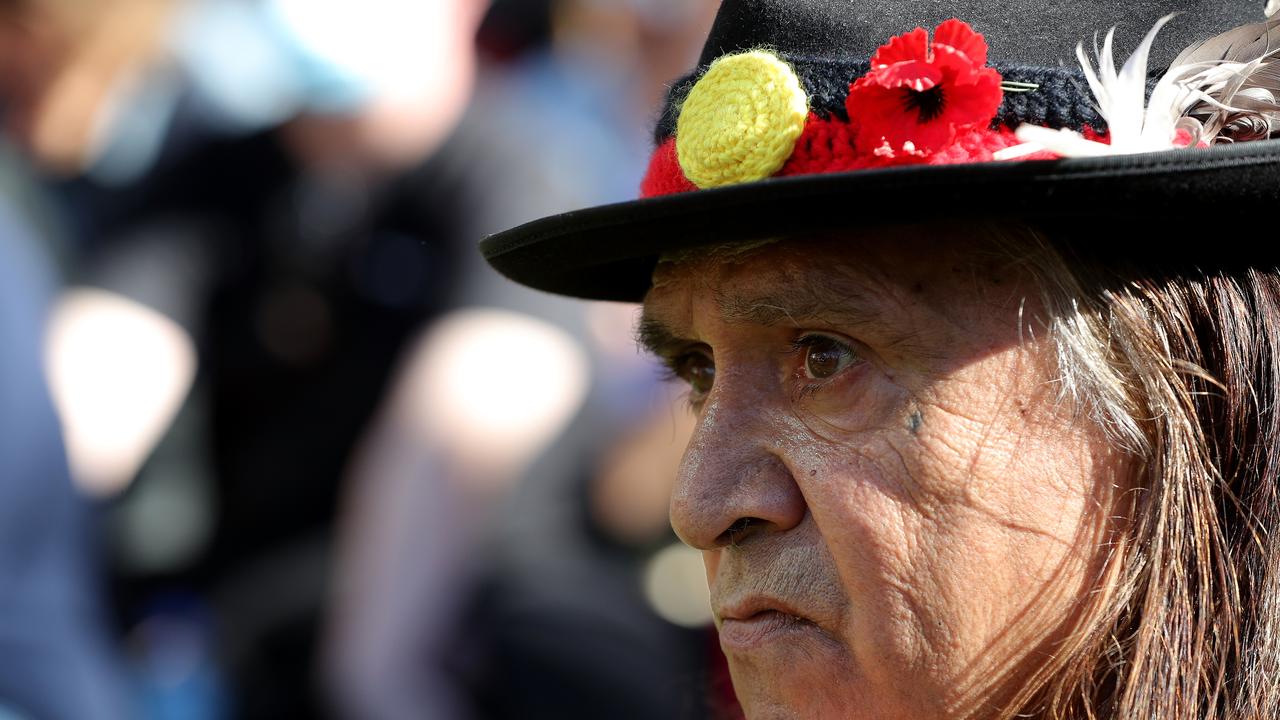Rio Tinto’s slow contrition over ancient cave destruction slammed by parliamentary inquiry
Rio Tinto’s belated admissions and half-hearted apologies over the detonation of 46,000-year-old shelters have been condemned by a new report.
Rio Tinto should negotiate a compensation and look into why it took so long to properly acknowledge mistakes it made with Juukan Gorge while those who suggested the miner’s initial half-hearted apology should think about quitting the industry, a parliamentary committee says.
The company’s detonation of 46,000-year-old rock shelters at the Pilbara site in a bid to extract an estimated $135 million worth of iron ore as it expanded its Brockman 4 mine in May drew international condemnation.
The fallout also claimed the scalps of Rio Tinto chief executive Jean-Sebastien Jacques, who will remain in the top job until a successor is found or March 31, whichever is soonest, iron ore chief Chris Salisbury and head of corporate relations Simone Niven – the miner’s most senior executive for Indigenous relations.
The company initially – and repeatedly – only apologised for causing “distress” to the traditional owners, the Puutu Kunti Kurrama and Pinikura people, who were devastated by the destruction of such a culturally significant site.

The wording did not go unnoticed and Rio Tinto then unreservedly apologised.
As a parliamentary inquiry that received 143 submissions and conducted 11 public hearings with 89 witnesses wore on, the series of bungles that enabled the debacle to unfold emerged – including information about Juukan Gorge’s cultural significance being removed from the company’s system.
“Rio Tinto has now admitted that the destruction of the Juukan rock shelters should not have occurred,” committee member Senator Dean Smith said in an interim report titled Never Again published on Wednesday.
“It is disappointing that it took Rio Tinto until its submission to the committee to finally reach this conclusion.
“I am pleased that Rio Tinto changed its position and apologised for the incident itself, but the delay in doing so further damaged Rio Tinto’s social licence and unfairly affected the social licence of the entire mining industry.
“Accordingly, Rio Tinto should review why it took so long to properly acknowledge its failings, and those within the organisation who argued for apologising only for the distress caused should consider their positions within the industry.”
The report makes seven recommendations including urging the WA government to pursue urgent reform of current state laws and the expectation that the rock shelter will be fully reconstructed at the cost of the mining company.
The amount of money regarding compensation is still be decided.
The #JuukanGorge inquiry has handed down a unanimous interim report. The destruction of these ancient sites was a disaster for our nation and the world. As the title of our report reflects, never again can we allow this to occur. Read it here:https://t.co/R0P5ayC7vK
— Patrick Dodson (@SenatorDodson) December 9, 2020
In an emailed statement after the report’s release, the miner reiterated its apology to the PKKP, saying it remained adamant the destruction of the rock shelters should not have occurred.
“The destruction of the Juukan rock shelters was wrong; it should not have happened and it does not reflect the values that Rio Tinto aspires to,” the company said.
Chairman Simon Thompson said Rio Tinto recognised the significant pain the PKKP had suffered “and we are working very hard to progress a remedy with them”.
“As a business, we are committed to learning from this event to ensure the destruction of heritage sites of such exceptional archaeological and cultural significance never occurs again,” he said.
“We have made important changes to the way we manage cultural heritage sites and our relationships with traditional owners, including a commitment to modernise our agreements.
“We recognise the importance of ensuring relationships with traditional owners are built on partnerships based on mutual benefit, respect and trust.”

PKKP Aboriginal Corporation spokesman Burchell Hayes welcomed the preliminary findings, saying the traditional owners appreciated the depth of the inquiry, which had brought important information about the destruction and stark revelations about the wider industry into the public domain.
“The destruction of Juukan Gorge was a global disaster that hit at the hearts of the PKKP people and the greater community,” Mr Hayes said.
“This inquiry has elicited crucial new information and provided a fuller understanding of the circumstances of this tragedy – details that may have otherwise never come to light.
“We hope the inquiry’s preliminary findings prompt a fundamental reset of the sector, particularly in the relationships between traditional owners and mining companies; and pave a way forward for more equal partnerships fostered by greater respect and mutual benefit.
“We have started the long road to healing and repairing our relationship with Rio Tinto, but there is still a long way to go.”

The chair of parliament’s Northern Australia Committee, Warren Entsch, noted there were a lot of factors that contributed to the destruction of the caves.
“The PKKP faced a perfect storm, with no support or protection from anywhere,” Mr Entsch said.
“They were let down by Rio Tinto, the Western Australian Government, the Australian Government, their own lawyers and Native Title law.
“The committee and I want to break that cycle. The neglect of the PKKP people stops here.”
The WA Government is in the process of updating its 48-year-old Aboriginal heritage laws, removing the section of the act that allowed Juukan Gorge to be destroyed, but any other consents that have been granted under that section cannot legally be revoked.
Mr Entsch emphasised that the report was an interim document and the inquiry would continue. The final report will be handed down in 2021 and none of the current findings are legally binding.
“The scale of the inquiry, the sheer volume of evidence that the committee has received, and continues to receive, and the serious constraints posed by COVID-19, means that the committee felt unable to do full justice to the inquiry in so short a time,” he said.
“As a result, the committee has chosen to table this interim report addressing its findings to date and setting forth recommendations which will be built upon next year.”



